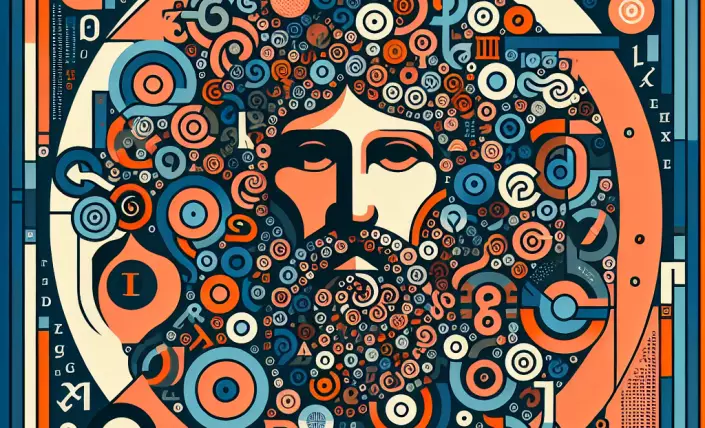In the relentless pursuit of happiness, many of us find ourselves trapped in a cycle of desire and dissatisfaction. This cycle, which seems inextricably linked to the human condition, is a fundamental theme in the teachings of Buddha. One of the most profound concepts in Buddhist philosophy is the understanding of suffering and the cessation of suffering, which offers a unique perspective on how we might find true contentment in our lives.
At the heart of Buddha's philosophy is the concept of the Four Noble Truths. These truths are not merely abstract ideas but practical insights into the nature of human experience. The First Noble Truth, often translated as 'Life is suffering,' is not meant to be a pessimistic view but rather a realistic acknowledgment that suffering is an intrinsic part of life. Birth, aging, illness, and death are inevitable, and so are the everyday frustrations, disappointments, and losses we encounter. Recognizing this truth is the first step in breaking free from the cycle of suffering.
The Second Noble Truth identifies the cause of suffering as 'tanha' or craving. This craving is not limited to physical desires but extends to emotional and psychological attachments. In our modern context, this might include the constant yearning for material possessions, the insatiable need for success, or the relentless pursuit of approval from others. Buddha taught that this craving arises from ignorance of the true nature of reality, leading us to cling to impermanent things and experiences as though they were permanent. This misunderstanding fuels our dissatisfaction, as the impermanent nature of life ensures that nothing lasts forever.
The Third Noble Truth offers a glimmer of hope by stating that cessation of suffering is possible through the abandonment of craving. This does not imply a life devoid of desires but encourages a transformation in how we relate to our desires. By cultivating an awareness of impermanence and developing a deep understanding of the transient nature of all things, we can learn to experience desires without attachment. This liberation from attachment allows us to enjoy life more fully, without the constant undercurrent of fear and disappointment that accompanies clinging.
The Fourth Noble Truth, known as the Noble Eightfold Path, provides a practical guide to achieving this cessation of suffering. The path encompasses right understanding, intention, speech, action, livelihood, effort, mindfulness, and concentration. It is a holistic approach that integrates ethical conduct, mental discipline, and wisdom. By following this path, individuals can cultivate the qualities necessary to overcome ignorance and craving, leading to a state of enlightenment or Nirvana.
Buddha's insights into the nature of suffering and the path to its cessation offer valuable lessons for modern life. In an era characterized by rapid change and uncertainty, the emphasis on understanding the impermanent nature of reality is particularly pertinent. By accepting that change is the only constant, we can reduce our resistance to life's inevitable fluctuations and embrace a more flexible, resilient mindset.
Moreover, the focus on mindfulness and ethical living encourages us to engage with the world in a more compassionate and conscious manner. In cultivating mindfulness, we learn to observe our thoughts and emotions without judgment, allowing us to respond to life's challenges with greater clarity and equanimity. Ethical living, as outlined in the Noble Eightfold Path, fosters a sense of interconnectedness and responsibility towards others, promoting a more harmonious and just society.
In conclusion, Buddha's philosophy provides a profound framework for understanding the human condition and offers practical guidance for achieving lasting inner peace. By recognizing the nature of suffering, understanding its causes, and following the path to its cessation, we can liberate ourselves from the cycle of craving and dissatisfaction. This liberation allows us to live more fully, with greater joy and compassion, transcending the limitations imposed by ignorance and attachment.










